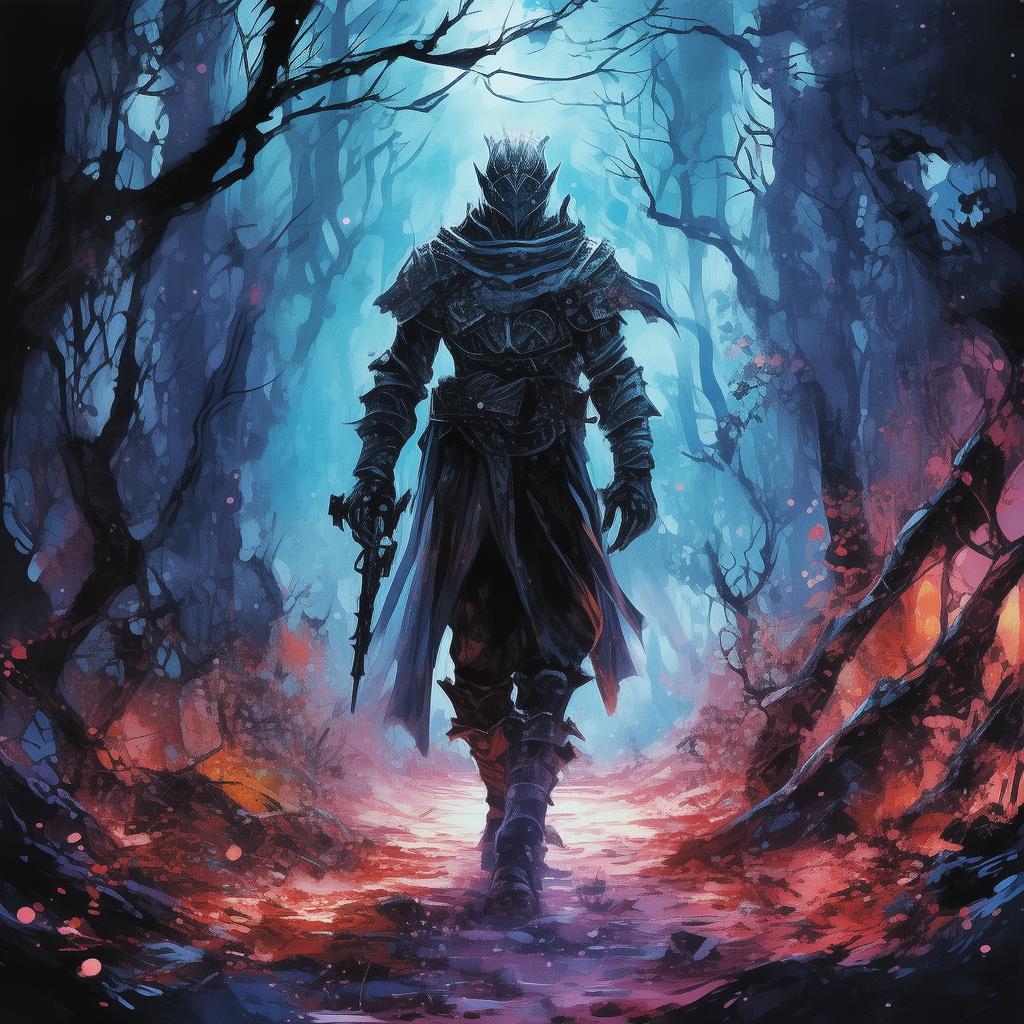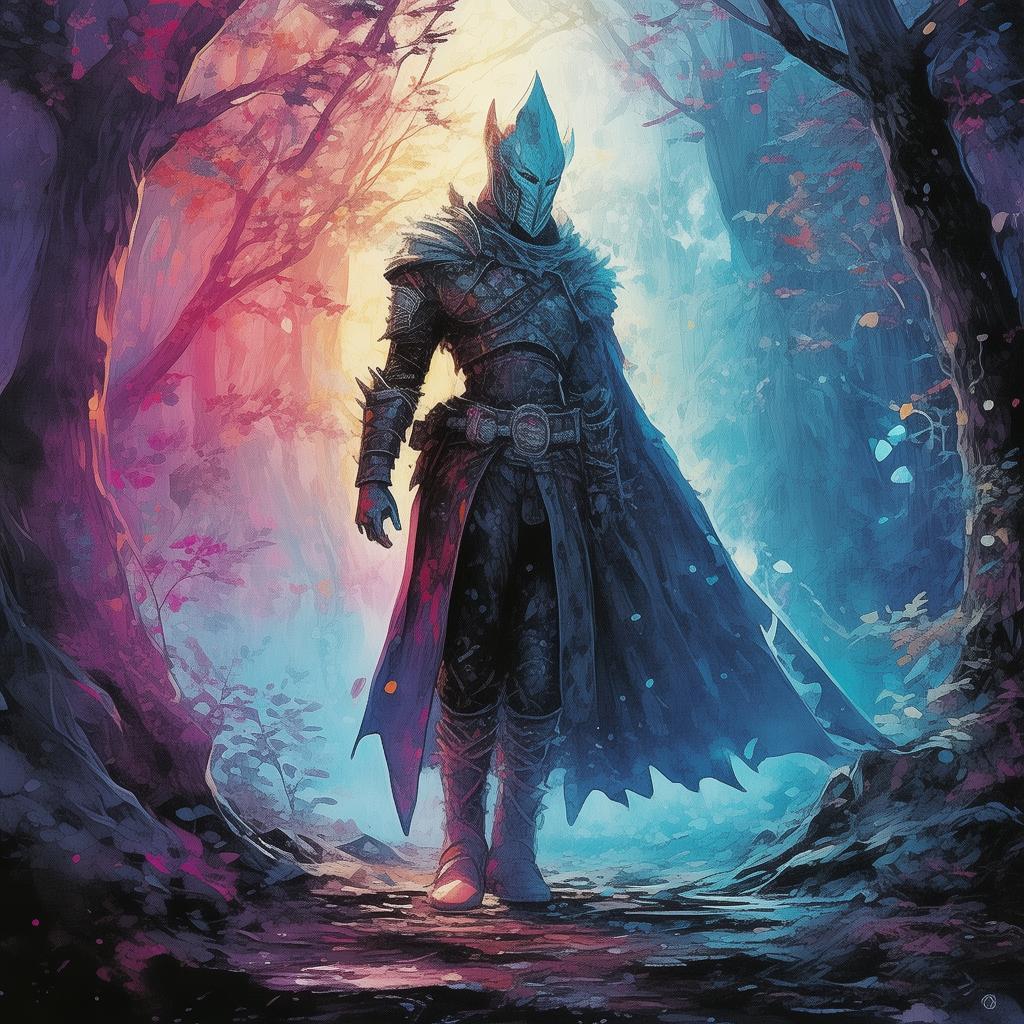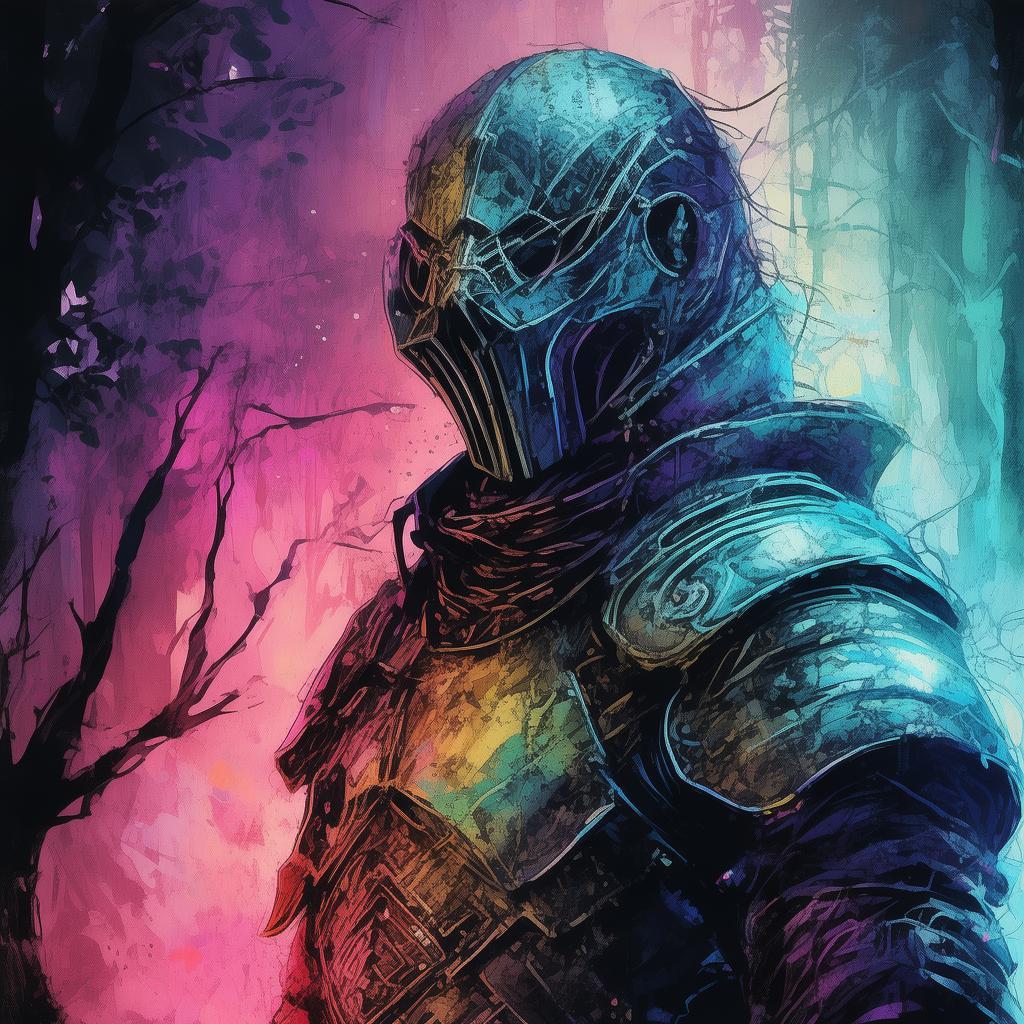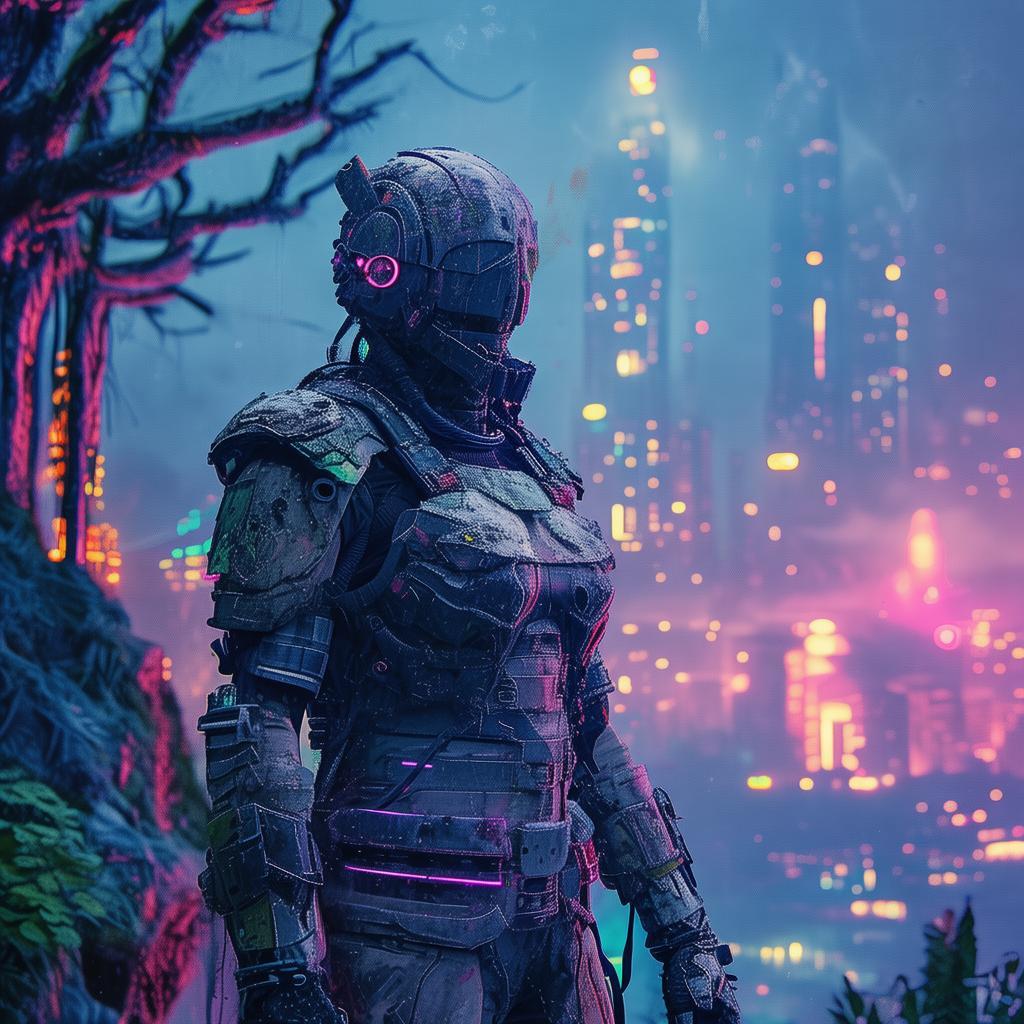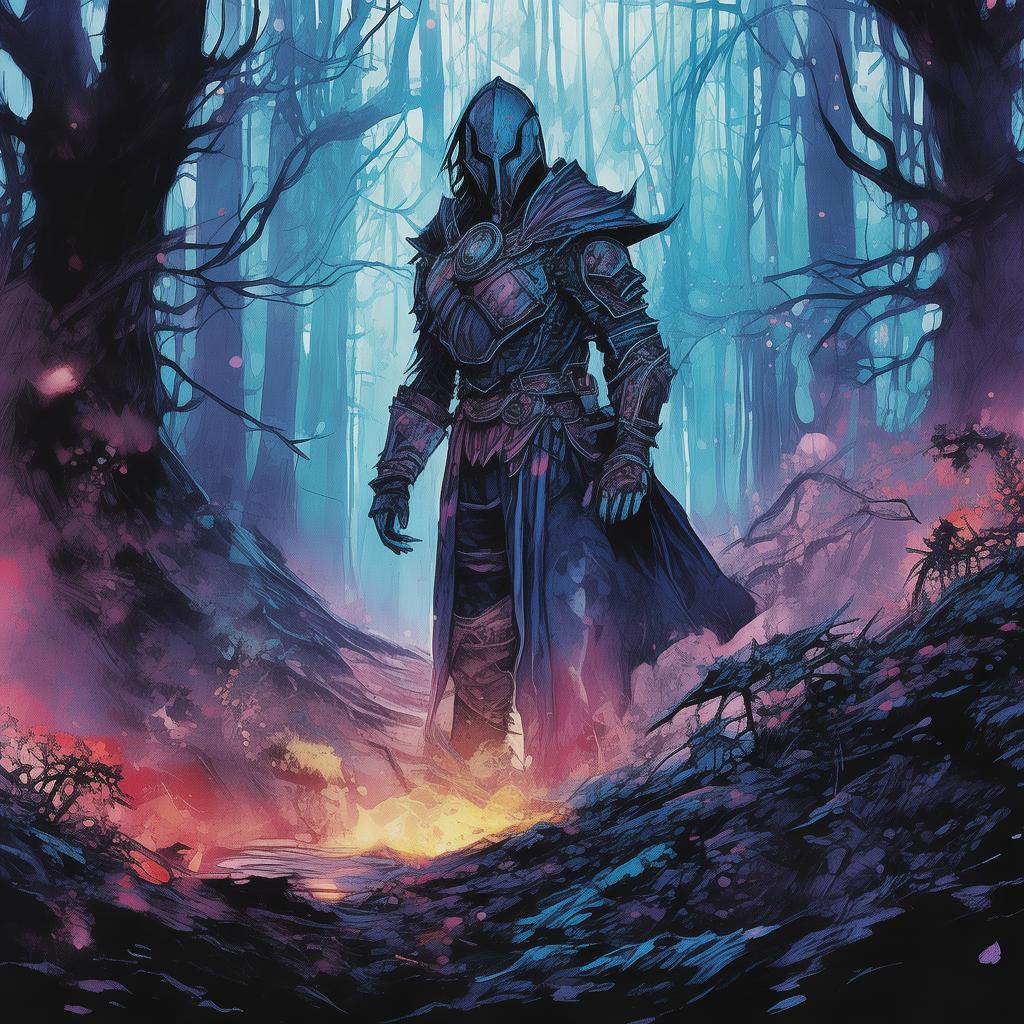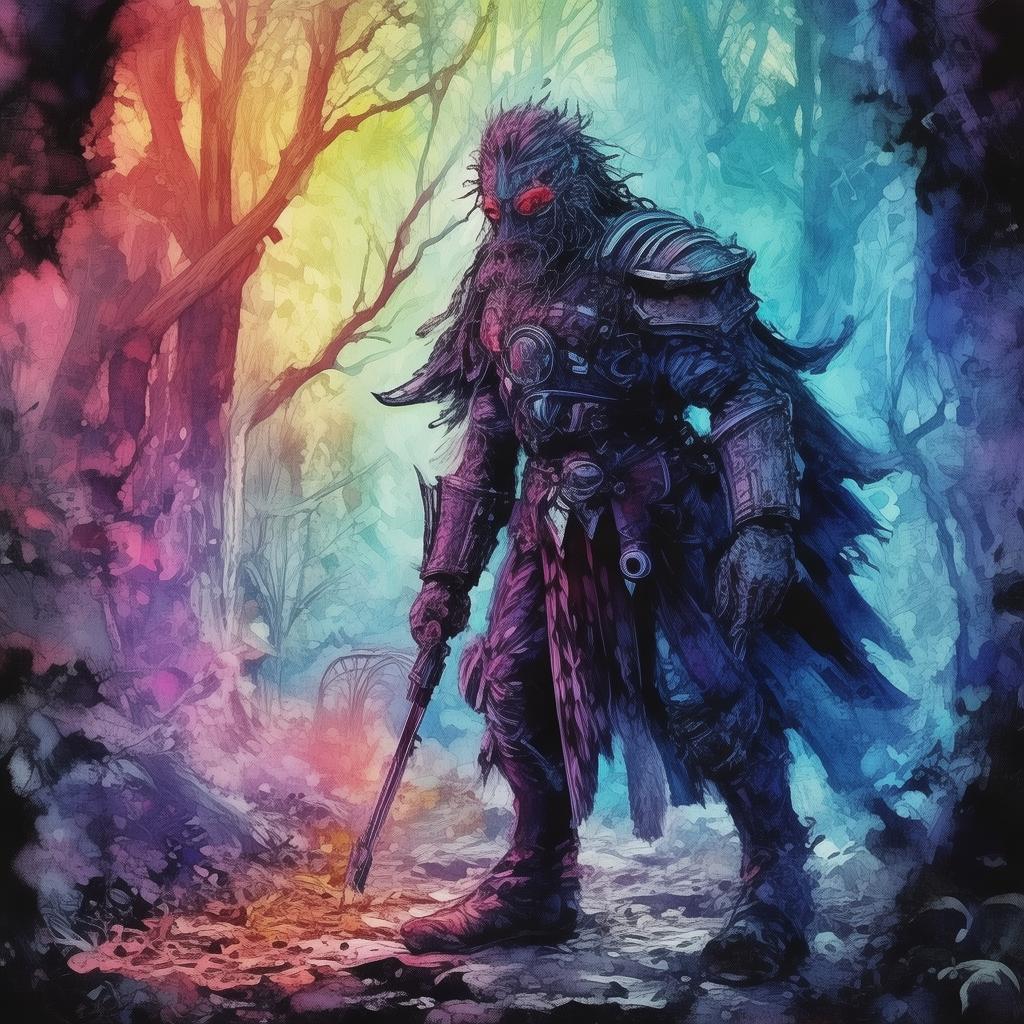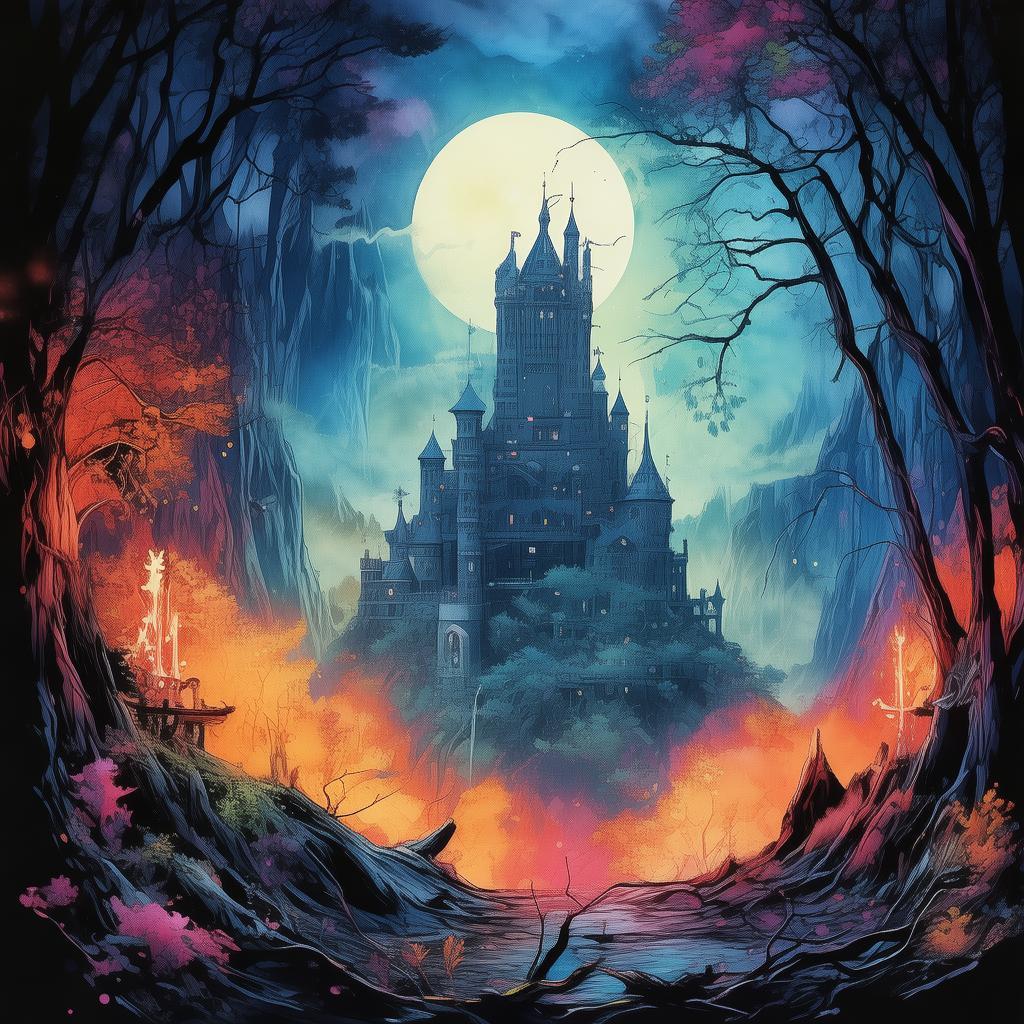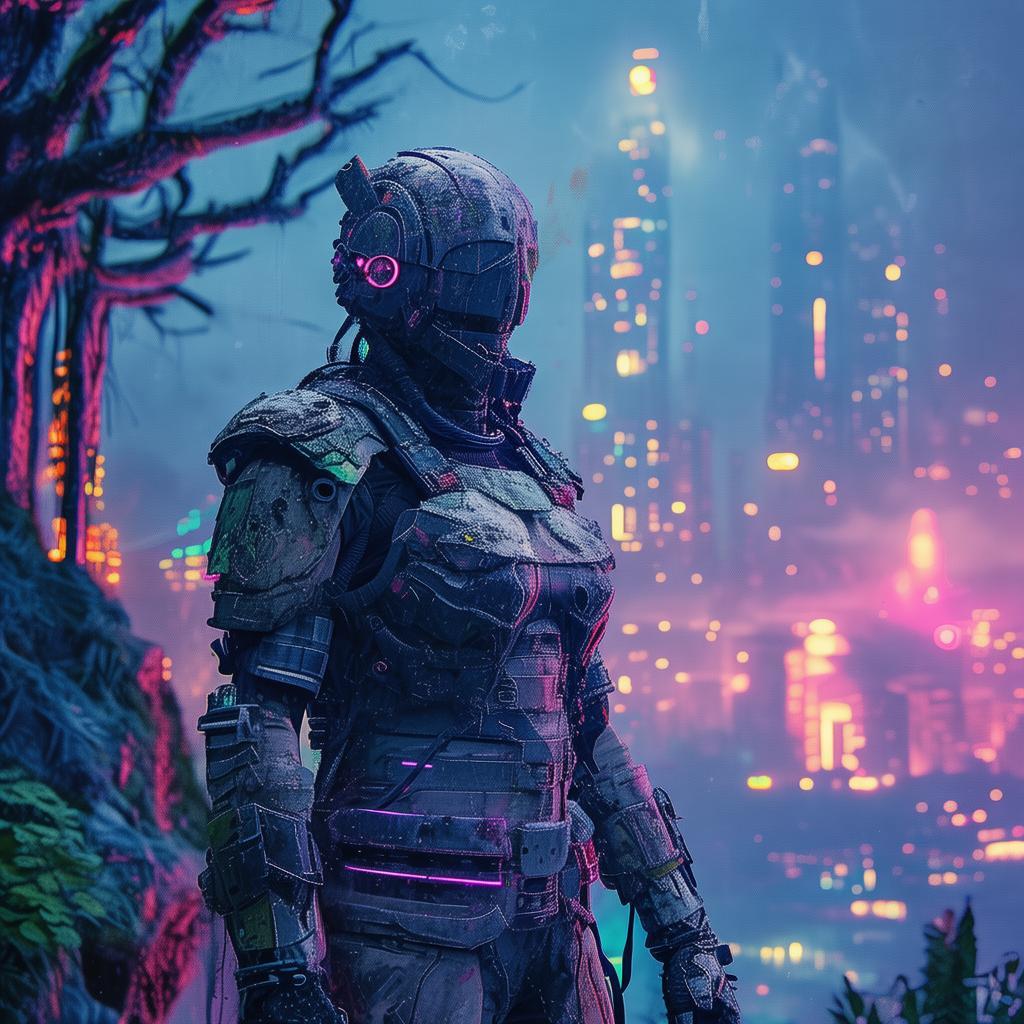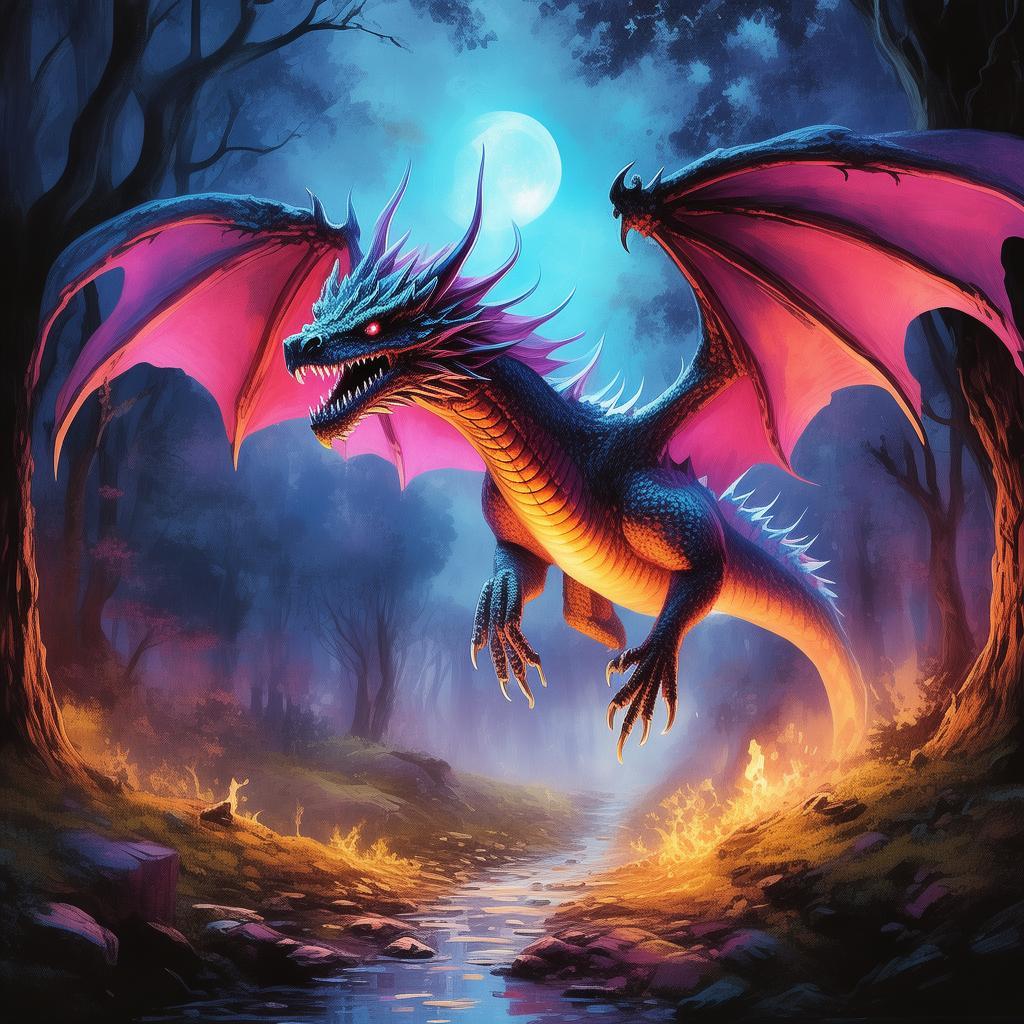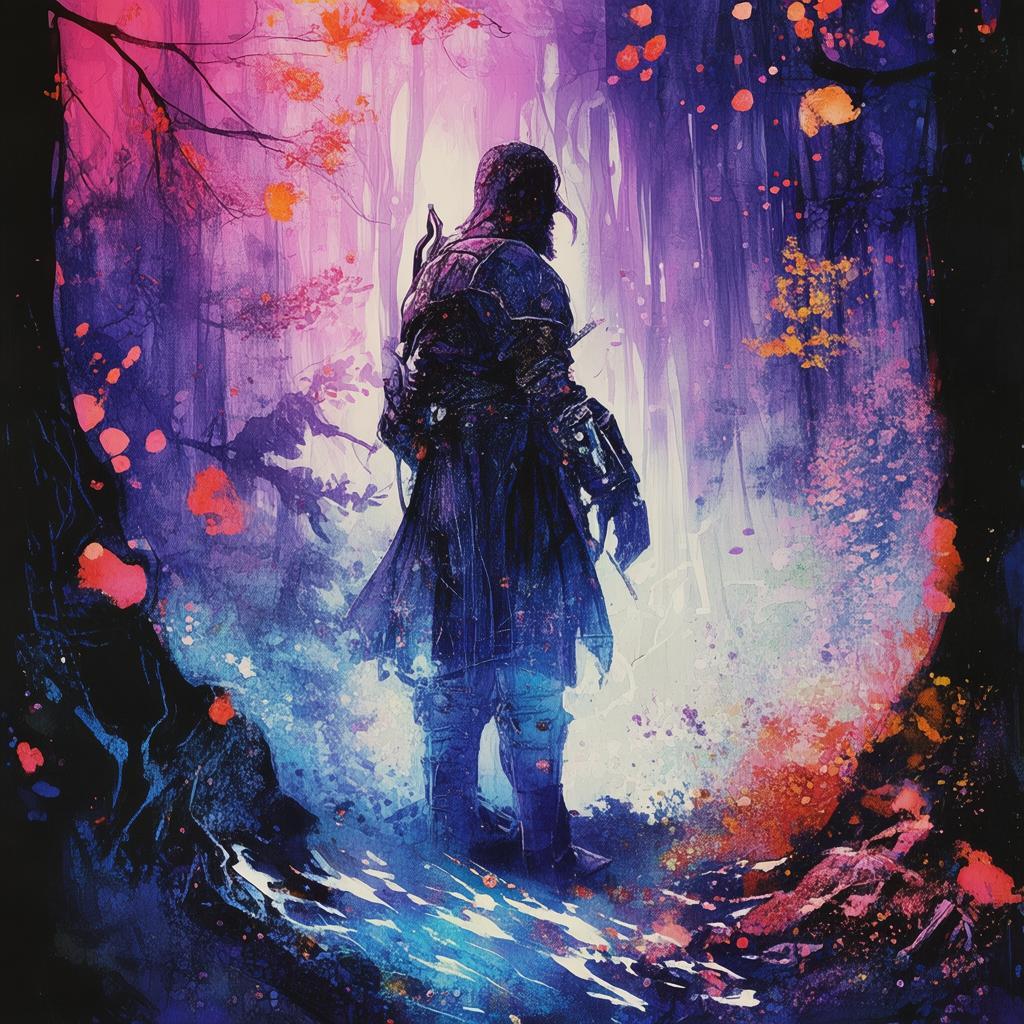The Eunuch's Paradox: A Chronological Conundrum
In the heart of the ancient court, amidst the whispering walls of the Forbidden City, there lived a man who was neither a warrior nor a scholar, but a eunuch—a man bound by tradition, yet free in spirit. His name was Jing, and he was the protagonist of a tale that would unravel the very fabric of time.
The Eunuch's Paradox began with a curious discovery. Jing, a humble servant to the emperor, found himself gazing upon a peculiar mirror that seemed to hold the secrets of the cosmos. As he peered into its depths, a blinding light enveloped him, and he found himself transported to a different era—a time when the same court, the same eunuch, and the same mirror awaited him.
Jing realized that he had become a time-traveler, a traveler bound by a mysterious force that allowed him to leap through the ages. But this was no ordinary journey; each time he traveled, he found himself at the same moment, the same place, with the same dilemma.
He was a eunuch in the court of the Ming Dynasty, tasked with protecting the emperor's secrets. Yet, this time, he carried with him the knowledge of the future, a future that he had altered in his previous visit. The emperor, a wise and just ruler, was now a tyrant, and the empire was on the brink of collapse.
Jing's first encounter with the paradox was a moment of shock. The emperor, who should have been kind, was now cruel. The courtiers, who should have been loyal, were now traitors. Jing knew that he had to make a decision that would restore the balance, but every choice he made only led to a different version of the same tragedy.
As the days turned into weeks, Jing found himself in a loop, a loop that was both a curse and a blessing. Each time he returned to the same moment, he saw the consequences of his actions, and each time, he was forced to reconsider his choices.
One day, as he stood before the mirror, a vision of his future self appeared. "Jing," the voice echoed, "you are the key to breaking this loop. You must understand that the past, the present, and the future are all connected. To change one, you must change them all."
In that moment, Jing realized that he was not just a eunuch in a court; he was a catalyst for change. He had the power to alter the course of history, but only if he was willing to face the consequences of his actions.
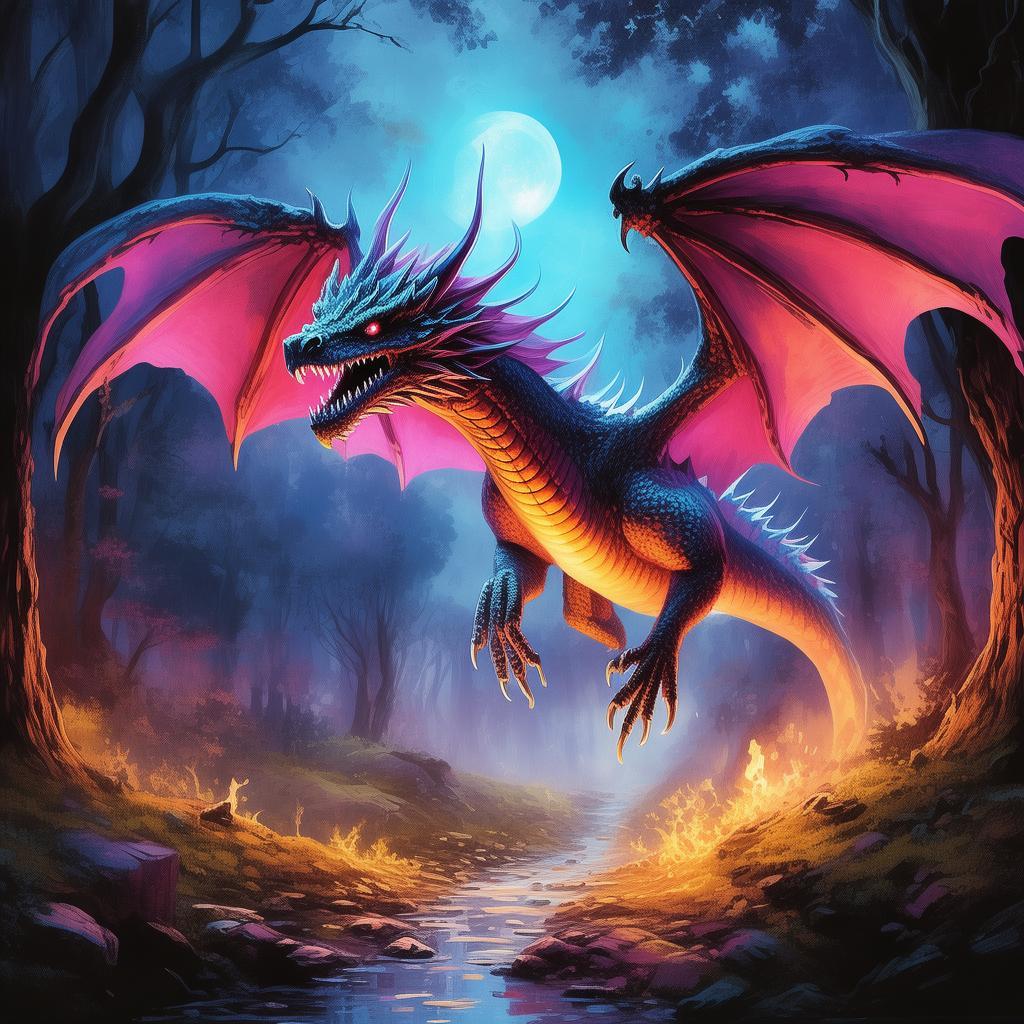
He began to study the court, the people, and the events that led to the emperor's fall. He discovered that the root of the problem was not just the actions of one man, but the system that allowed such a tragedy to occur. He knew that he had to change the system, to make it just and fair.
Jing's journey was not an easy one. He faced betrayal, he lost friends, and he risked his own life. But he pressed on, driven by a vision of a better world. He used his knowledge of the future to guide his actions, to make decisions that would lead to a more just society.
Finally, the day came when Jing found himself at the precipice of a great decision. The emperor, now a tyrant, had ordered the execution of a loyal courtier. Jing knew that if he intervened, he would alter the course of history, but he also knew that the loyal courtier's life was worth saving.
With a heavy heart, Jing stepped forward and spoke to the emperor. "Your Majesty, this man is innocent. His life is more valuable than any courtier's loyalty."
The emperor, taken aback by Jing's courage, hesitated. In that moment, Jing saw the potential for change. He knew that the emperor was capable of greatness, and he believed that with the right guidance, he could become the ruler that the empire needed.
As the emperor agreed to reconsider his decision, Jing felt a sense of relief. He had broken the loop, he had altered the course of history, and he had done so without sacrificing his own moral compass.
In the end, Jing returned to his own time, a changed man. He had learned that the past, the present, and the future were all connected, and that the decisions we make in the present can have far-reaching consequences.
The Eunuch's Paradox was not just a story of time-travel; it was a story of responsibility, of the power of choices, and of the eternal connection between past and future. Jing's journey had shown him that even a eunuch, bound by tradition, could change the world.
✨ Original Statement ✨
All articles published on this website (including but not limited to text, images, videos, and other content) are original or authorized for reposting and are protected by relevant laws. Without the explicit written permission of this website, no individual or organization may copy, modify, repost, or use the content for commercial purposes.
If you need to quote or cooperate, please contact this site for authorization. We reserve the right to pursue legal responsibility for any unauthorized use.
Hereby declared.
